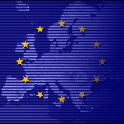EU Justice and Interior Ministers have just met in Tampere, Finland, to devise a common immigration and asylum policy by 2010. As contentious as the issue proved, it is ultimately no match for the other issue on the agenda, which set alarm bells ringing in a number of European capitals: changing the EU's system of qualified majority voting (QMV) on criminal justice and home affairs matters. The changes proposed would mean ending national vetoes on highly sensitive issues -- and thus a further significant loss of sovereign control to Brussels. Though the two-day conference broke up with little achieved, EU Commissioners are determined to push to "simplify voting procedures" and reinvigorate the stalled decision-making process. The Finnish presidency has gone even further, stating that it wants to achieve QMV by the end of its presidency in December, 2006. The ramifications for countries like the United Kingdom, which has fought hard to protect its national veto, are serious and problematic. But what has upset those who are loathe to see more power ceded to Brussels is the blatant backdoor attempt to impose key elements of the rejected EU Constitution, democratically voted down by the French and the Dutch just over a year ago. Opposition is currently being led by German ministers who perceive changes to QMV as an unwelcome example of "cherry-picking" -- and one that removes the "emergency brake" allowed for in the rejected constitution.
Is the EU Set on Overriding the Democratic Will?

